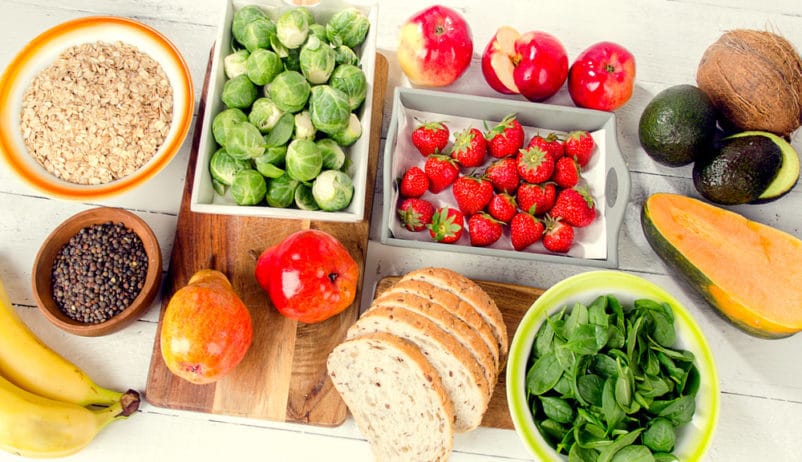Contents:
- Medical Video: Are You Getting Enough Fiber in Your Diet?
- How important is fiber for children?
- Pros and cons of fiber supplements for children
- Food is the safest source of fiber for children
- 1. Oatmeal
- 2. Apples
- 3. Carrots
- 4. Wheat bread
Medical Video: Are You Getting Enough Fiber in Your Diet?
Fiber supplements are chosen by several parents to overcome the problem of children who do not like vegetables and fruit. Fiber supplements are considered a practical solution to help meet a child's fiber needs. However, actually fiber supplements are good for children or not? Do all children need it? Come on, learn more about the intricacies of fiber supplements for children here.
How important is fiber for children?
Food fiber has a very important function in the body. Fiber makes children full while improving the child's digestive system. Eating patterns of children with sufficient fiber can prevent constipation (difficulty defecating). Fiber-rich foods are also a good source of vitamins and minerals so they can help reduce the risk of certain cancers and obesity.
Therefore, fiber needs of children must be fulfilled properly. Food fiber can be obtained from various sources. According to the American Academy of Pediatrics, fiber can be obtained from vegetables, fruit, beans, brown rice, and whole grains such as whole wheat bread or fiber-rich cereals.
Pros and cons of fiber supplements for children
Food fiber is indeed important for the overall health of the child. When a child's fiber needs in his daily diet are insufficient, he is at risk for constipation and other intestinal problems.
Now, this time the doctor may recommend fiber supplements for children. Use of this supplement must be under the supervision of health workers. Do not carelessly provide fiber supplements for children without consulting a pediatrician first.
Some studies have found evidence that fiber supplement products containing polyethylene glycol can cause central nervous system damage and lactic acidosis (body pH is too acidic) in children.
In addition to the content of polyethylene glycol, there are more supplements that contain psyllium. Fiber supplement products that contain psyllium can indeed help relieve constipation. Reporting from Livestrong page, psyllium is indeed an effective supplement to help treat digestive problems in children.
Psyllium makes denser feces contain. Pysillium also makes bowel movements more smoothly so that children have no difficulty defecating. The recommended daily dose for children is 3.4 to 16 grams of psyllium.
However, no studies have shown whether fiber supplements for children are safe given in the long term. Therefore, the use of fiber supplements for children must be under the supervision of a doctor, not without consideration. Even if the child does have to take fiber supplements, there is a certain period of time when to take it and what dose is recommended by the doctor.
Research related to the side effects of using fiber supplements for children is still being developed for the long term. Discuss with your pediatrician if you have further questions.
Food is the safest source of fiber for children
Fiber supplements for children cannot be substituted for whole fiber-rich foods. To be safer and healthier, you should give children fiber from natural food sources. There are many practical food sources and many kids love them too. Here's an example.
1. Oatmeal
You can give oatmeal to children at breakfast time. One cup of cooked oats can contain up to 4 grams of fiber. You just add topping children's favorites like fruit, meses, raisins, or topping others.
2. Apples
Apples are one of the fruits that are crisp and fresh. This is one of the fruits that many kids like. A small apple contains about 3.6 grams of food fiber.
3. Carrots
Carrots are one of the brightest types of vegetables that kids like too much because they don't taste like other vegetables. In half a glass or about 50 grams of carrots, children can get around 2.9 grams of fiber.
4. Wheat bread
You can also give whole wheat bread to your children to fulfill their fiber needs. A piece of wheat bread usually contains 2-3 grams of fiber. You can make sandwiches for children who are practical and also rich in fiber to prepare lunch or snacks.
In addition to the above food sources, other vegetables and fruits can also help meet the child's fiber needs every day. Get used to providing fiber-containing foods for children. With adequate fiber from food, children are free from digestive disorders. Plus, you don't have to bother adding fiber supplements to children.















